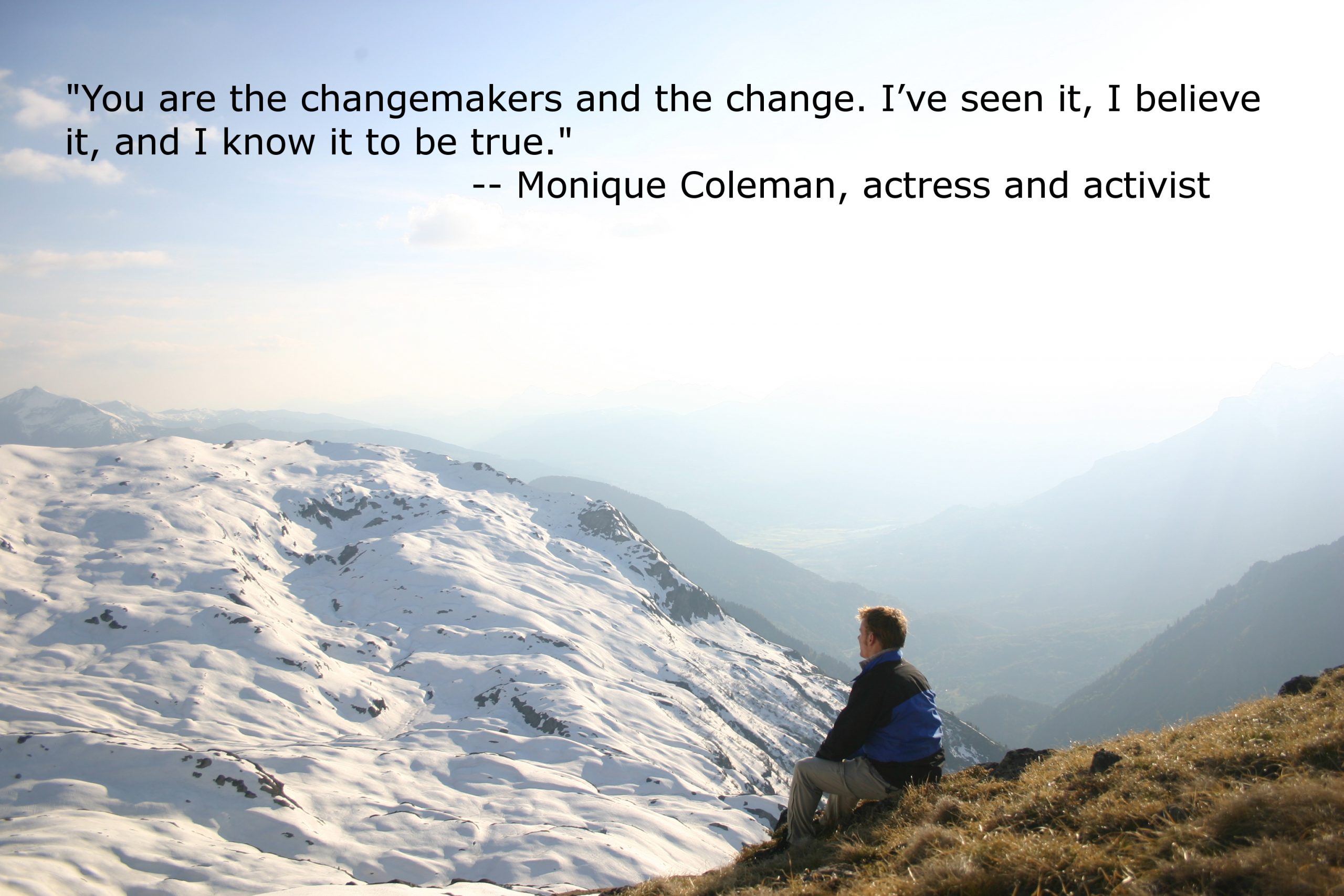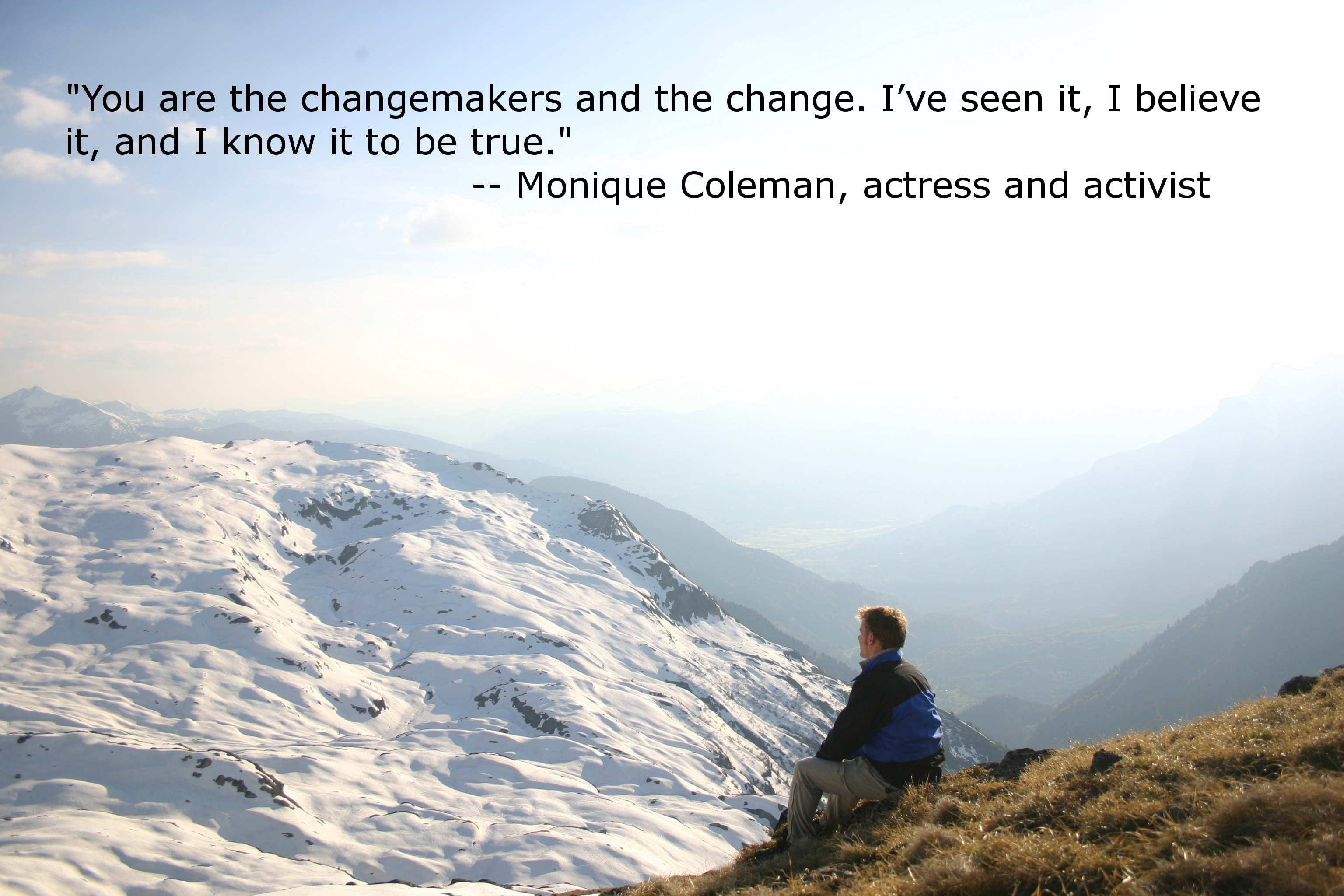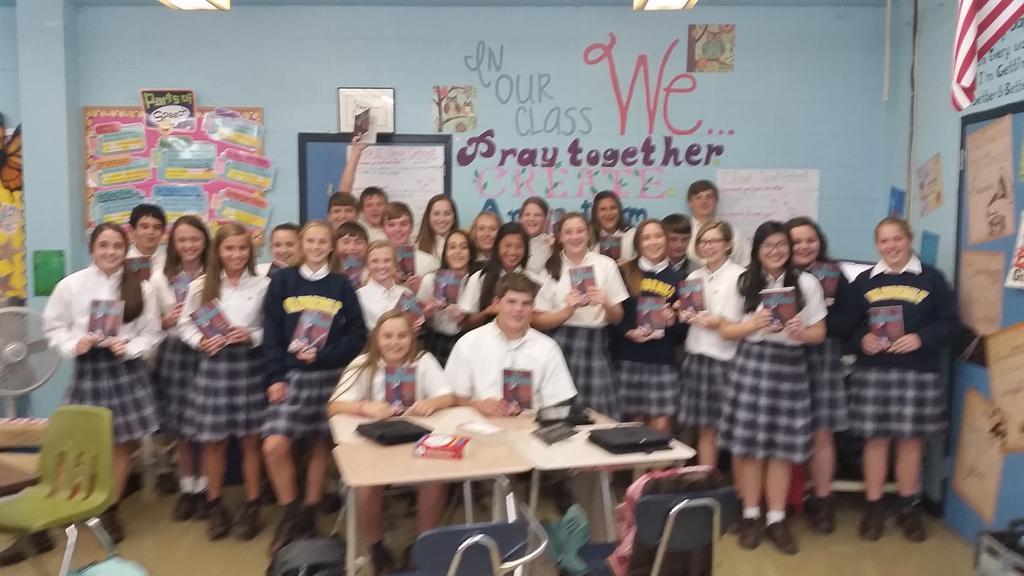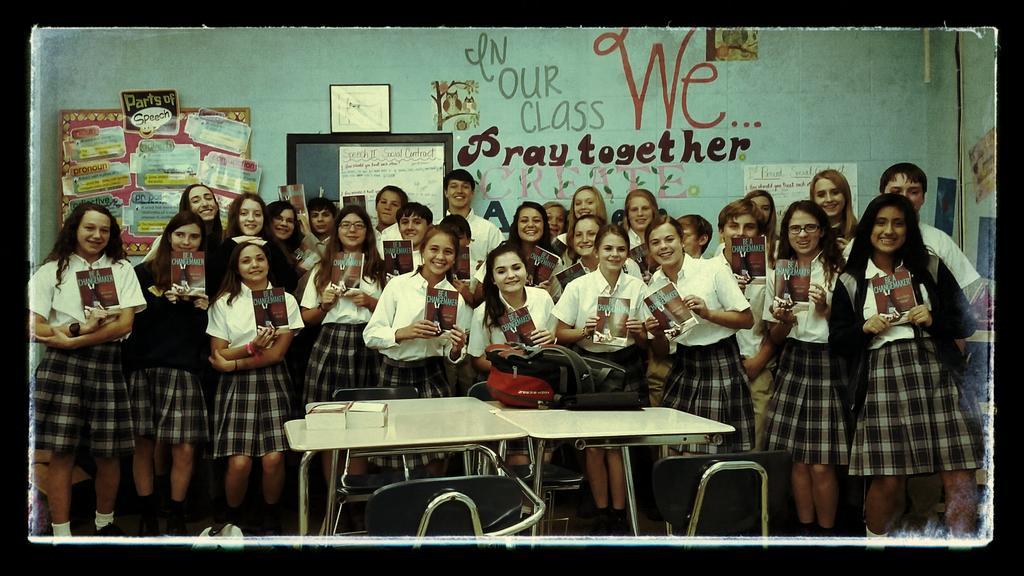Every now and then I stumble on something so wonderful that I want to add it my own list of “My Favorite Things” and share it with the world: the Let’s Get Busy podcast from Matthew Winner is one of those things. Whether you’re an author, illustrator, teacher, librarian, agent, editor, bookseller–if you have anything to do with children’s literature at all–this show is too good to miss. Think you don’t have time for podcasts? I listen while I’m in the car. Or while I walk the dog. Or while I clean the house. And, believe me, all of those tasks are way more enjoyable when you have Matthew and his guests with you!
Matthew recently recorded his 100th episode of the podcast, and he put together a massive blog and podcast tour to celebrate. Here’s where he’s been so far:
And I’m thrilled that today is my turn to host! Matthew was kind enough to answer a few of my questions, so we can all get to know him better.
LT: Hi Matthew, and welcome! I’ve already gushed to you about how much I love your podcast, but I’m curious to learn more. How and when did you first become interested in doing a podcast like Let’s Get Busy? How did you get started?
MT: I listen to a lot of podcasts. I mean, a whole lot of podcasts. All the time. When I’m driving to work. When I’m washing the dishes. When I’m shelving books. When I’m mowing the lawn. It’s the primary media I consume. The idea for doing a podcast of my own and, specifically, a kidlit podcast just sort of popped into my head one day, took up camp, and then wouldn’t leave. But it took a conversation with Travis Jonker (of 100 Scope Notes) to nudge me into actually starting it. He and I were talking one evening during an ALA conference in Chicago about how much we love the insights but also those memorable vignettes that inevitably stick in your brain whenever you’re in the company of authors or illustrators (or anyone who has something to say, for that matter). Travis asked me what my next big project would be and I told him that all I could think about was this idea of capturing these sorts of conversations through a loosely formatted podcast. Then he basically asked me when I was starting, and that was all it took.
LT: Sometimes we just need the tiniest nudge, don’t we? (Thanks, Travis!) You sure have been busy since then. I can’t believe you started less than a year and half ago, and you’re already up to 100 episodes!
LT: How much time do you spend on the podcast overall, and what’s the breakdown of how that time is spent (lining up guests, recording and editing, promoting, etc.)?
MW: Eeep. Let me try to make this as interesting as possible.
MW: I shoot for 30-minute recordings so that I’m able to post twice a week (or 8 episodes per month). A lot of this is based on bandwidth limitations and the cost of maintaining a subscription on Libsyn, a podcast host site. I usually talk with each guest for about an hour total and we spend the unaired time locking into a comfortable candor (or going on tangents and then saying, “Shoot! I should be recording this!”). Editing and prepping the accompanying blog post takes anywhere between 30 and 60 minutes. And coordinating schedules and review materials and recording logistics over email can take upwards of 30 minutes per scheduled guest, but that might be over a series of weeks.
MW: So, let’s see. That’s 25 minus the circumference of Y, carry the 3 and substitute 7 for X… about 2–3 hours per guest from first contact to published and promoted episode.
LT: That’s a big commitment (but less than I thought–you’re fast!). What then is the hardest part of doing the podcast, and how do you deal with that?
MW: The hardest part for me is asking new people to come on. It seems like everyone and their mother has a podcast nowadays, but I’m often the first podcast my guests have ever appeared on or, in some cases, listened to. And also, many of them have no idea who I am. That gets in my brain and makes me think all sorts of wonky things and then I start to psych myself out over sending that first contact email. I’ve coped with it by asking each of my guests, following our own conversations, to recommend a friend or colleague whom they think my be a good fit for the podcast or this interview format. It’s worked pretty well for me and my guest list now reads like one great big family photo album with all sorts of zigzagging connections between each of the faces.
LT: That is really neat to envision. So much of what we do is built on personal relationships, isn’t it? I don’t think you have anything to worry about, though. First, kidlit people are the best people in the world, don’t you think? And second, I’m sure most authors and illustrators are thrilled by the opportunity to chat with you: you’re interested in our work, and you give us a chance to talk about it. Just remember: we’re nice, and you’re doing us a favor. There’s no need to psych yourself out! 🙂
LT: What has surprised you most about the podcast?
MW: Everything surprises me about the podcast. Sometimes the thing that surprises me most is knowing that anyone’s actually listening. I learn something new with each new person who comes on and by rule of thumb I allow myself space to wonder, to be excited, to nerd out over process, and to ask whatever comes to mind. That approach has served me well and has led to a good deal of surprises when our conversations take unexpected turns. It’s how I learned that Laurie Keller (Arnie the Doughnut) plays banjo, that Nick Bruel (Bad Kitty) used to work at Books of Wonder, a landmark children’s bookstore in New York, and that Steve Light (Have You Seen My Dragon?) works with PreSchool students!
LT: I love that every episode feels like a casual conversation between friends, rather than an interview, per se. In fact, it’s my favorite thing about listening to them! What is your favorite thing about doing them?
MW: So, I have a blog called The Busy Librarian. I started it as a sort of advocacy blog for all of us teacher librarians who are all just so busy all the time. On October 10th, 2010, I published my first post. Here is the text in its entirety:
This is a blog for busy librarians.
For those of us who feel, well, overwhelmed.
It’s a place of comfort and, hopefully, a source of inspiration.
Here you will find the opportunity to interact globally and to impact locally.
We’ll synergize moments, ideas, and activities that will enable us to become more effective librarians, more efficient in our libraries, and more energetic with our students, without feeling like things are careening out of control.
So, let’s get busy!
It made perfect sense to me to name the podcast as an extension of the blog itself. Hence, Let’s Get Busy. My very good pal Sherry Gick, teacher librarian at Rossville Consolidated Schools in Rossville, IN, and author of the Library Fanatic blog, and Nikki Ohs Barnes, fellow Nerdy Book Club member and co-founder of the Virtual Book Club, met me at ALA where, just one night previous, Travis and I had talked about podcasting. Super excited to share, I told Sherry and Nikki that I was going to start a podcast and that I decided to call it Let’s Get Busy after my blog. They both immediately broke into what they decided would have to be the podcast sound effect… a sort of BOW-CHIKKA-WOAH-WOW that I have not to this day been able to get out of my head whenever I’m about to start an interview. Carrying those sorts of memories around everywhere I go is definitely my favorite thing. And with 100 episode behind me, I’m definitely carrying around a lot of stories!
LT: I’m sure you are!
LT: How do you feel your other activities (teaching, presenting, writing, blogging, Twitter, parenting, etc.) make the podcast better? And, vice versa, how does the podcast contribute to those other facets of your life?
MW: Oh my word! Everything and I mean EVERYTHING goes into the pot when it comes to making these recordings. Books from my picture book guests are typically already bedtime staples with our 4‑year-old son. Teaching and being a teacher librarian is the best and comes up over and over again on our chats because I like to share the way that the guests’ book is reaching kids and supporting readers in ways that I get to experience firsthand. Twitter is my professional learning community, but it’s also where I get to nerd out with friends over great kidlit and meet very cool people creating very cool books in the process, many of whom I’ll invite on the podcast because their work sticks with me.
MW: Doing the podcast brings me pure joy and is or has become a part of my identity. And I’ve gotten to meet a ton of really cool people in the process. I’m thankful that our son is growing up in a house surrounded with beautiful picture books, both on our bookshelves, and in frames hanging up throughout our house.
LT: Oh, I love that. Why have I never thought of framing picture books? (Hmmm… just in time for Christmas, too!)
LT: I’ve always said that I will know I’ve made it when I receive one letter from one child saying that something I wrote made a positive difference in his or her life. How do you define success? Do you feel like you’ve achieved it? If not, what’s left on your to-do list?
MW: I listen to my guests and I listen to my listeners. The podcast succeeds when the guests feel like they’ve found a home in our conversation and when the listeners feel like they’re in the room with us. I also try to take in the kind things people are saying about Let’s Get Busy or about me personally. Seymour Simon once told me that he thinks of me “like a son” and that he’s proud of me. I achieved all I ever wanted when I published the very first episode of Let’s Get Busy. And I’m thankful that so many people feel moved to tell me how the podcast is connecting with them. Success to me is knowing that one person cares about the thing you’re making, or saying, or creating. And I’m one person that cares a great deal about what I myself am making, saying, and creating. So with every episode I get to share, I’ve already achieved success before a single download occurs.
LT: What a wonderful attitude, Matthew! I care a great deal about what you’re making, saying, a creating, too. Thanks so much for sharing it with us !
As you can see from above, Matthew calls himself “the busy librarian” for good reason. Here are some of the places you can find more from him:
And be sure to follow the rest of the Let’s Get Busy podcast/blog tour, here:



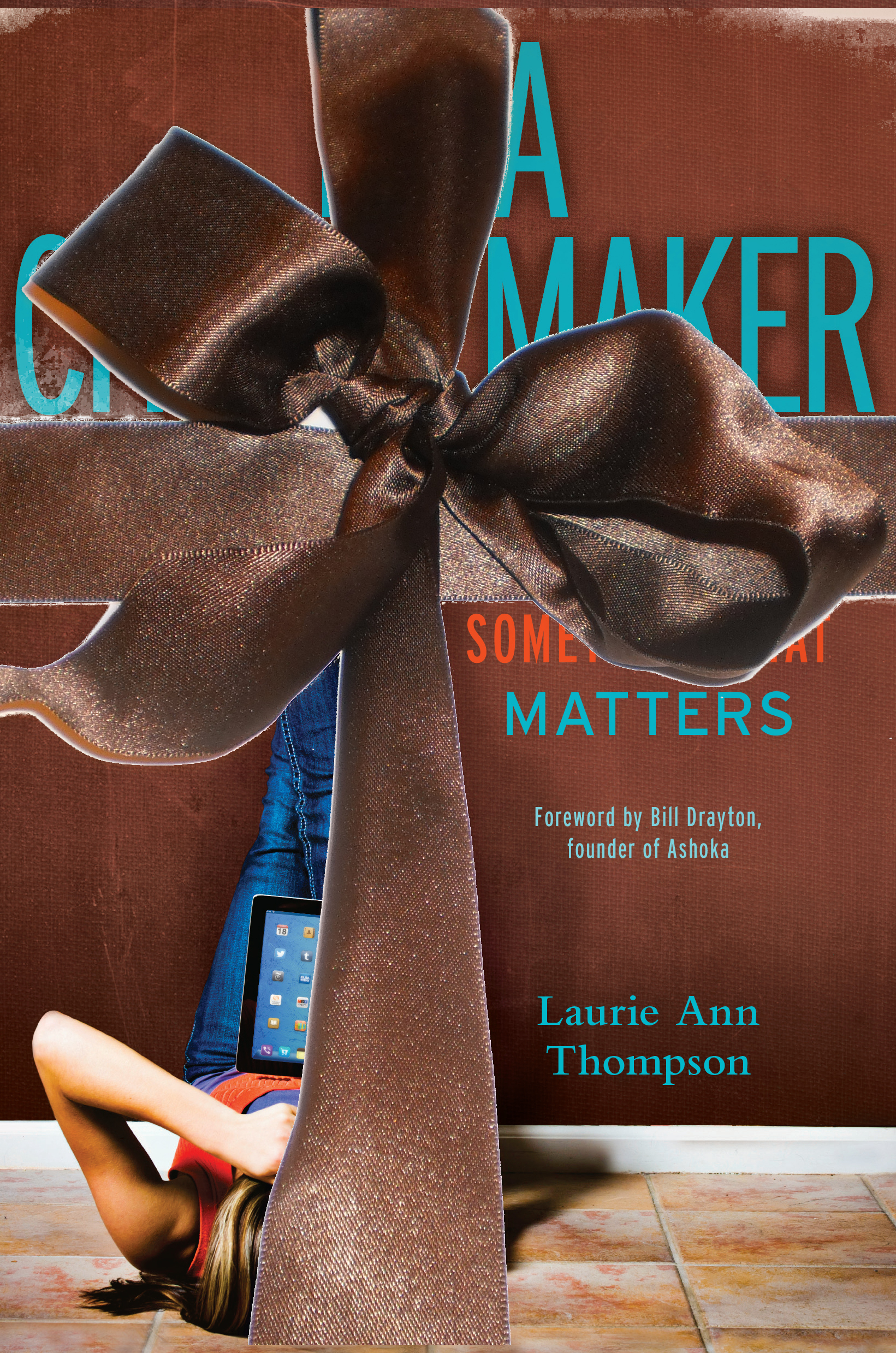


 Ask for help finding it on the shelf in bookstores and libraries, even if you already know where it is, so the booksellers and librarians will know where it is, too!
Ask for help finding it on the shelf in bookstores and libraries, even if you already know where it is, so the booksellers and librarians will know where it is, too!
